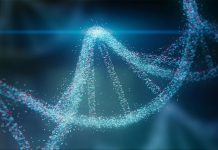
People can lower their risks of getting many common kinds of cancer by making healthy choices.
Screening tests can find some cancers early when treatment works best.
Vaccines (shots) can help prevent several kinds of cancer. Learn more about how to lower your risk of getting cancer.
In a study from Wistar’s Ellen and Ronald Caplan Cancer Center, scientists found a gene signature that accurately predicts the functioning of P53 variants, important information to assessing cancer risk and optimizing choices for cancer treatments.
There are many genetic variants of P53. A lot of P53 variants are classified as having uncertain significance with current methods of testing.
In the study, the team monitored differences in activity in mutant and normal p53 proteins to determine any genetic markers that would flag if a p53 variant is functioning less than normal.
The research team used machine learning to identify a gene signature that consistently and accurately predicted the difference between a normal functioning or benign p53 and a lower functioning variant of the protein.
This knowledge could be used to screen individuals with genetic variants of p53 and better inform them of their cancer risk and response to therapy.
The team intends to continue this work with the goal of turning the gene signature into a blood-based genetic test someone could take to learn about their p53 status.
They suggest the promise of this research is personalized medicine.
The study was conducted by Maureen Murphy et al and published in PNAS.
Copyright © 2023 Knowridge Science Report. All rights reserved.



